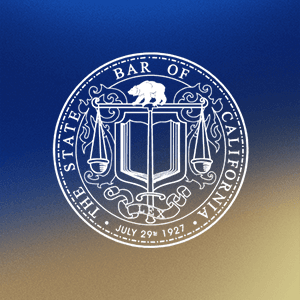
Computer & Internet Crime Lawyer in Los Angeles
If you or someone you know is being investigated for, or has been charged with committing a computer or internet crime, you should consult with an experienced cyber crime attorney immediately. In California, most computer or Internet crimes are prosecuted as felonies and come with substantial jail or state prison sentences.
We are experienced and knowledgeable cyber crime attorneys in Los Angeles that can provide you with the aggressive representation needed for these types of white collar crimes.
Computer and Internet Law - California
Computer crime and Internet crimes (also referred to as cybercrimes) are a broad category of crimes involving computers and the Internet. These crimes range from child pornography to hacking, to stalking and identity theft.
California has specific computer crime statutes known collectively as the "Comprehensive Computer Data Access and Fraud Act" (California Penal Code Section 502(c), which is aimed at hackers and other individuals who break into computer systems to obtain or alter information. Penal Code Section 502(c) sets out nine different ways that a person can break the law using a computer or the Internet in California (in all cases, the defendant's actions must be both intentional and without the permission of the victim):
- To alter, damage, delete, destroy or otherwise use any data, computer, computer system, or computer network to devise or execute a fraudulent scheme or to wrongfully control or obtain money, property, or data.
- To take, copy or use data from a computer, computer system, or computer network.
- To use or facilitate the use of computer services.
- To add, alter, damage, delete or destroy data, computer software, or computer programs in a computer, computer system or computer network.
- To disrupt or deny authorized computer services.
- To provide a means to access a computer, computer system or computer network.
- To access a computer, computer system or computer network.
- To introduce a computer contaminant into a computer, computer system or computer network.
- To use the Internet domain name of another person or entity to send electronic mail messages that damage a computer, computer system, or computer network.
However, there are a number of other cybercrimes that are not covered in the Comprehensive Computer Data Access and Fraud Act, for example:
- Internet Child Pornography (California Penal Code Section 311) – producing, distributing, preparing, publishing, developing or duplicating images of minors under the age of 18 engaged in sexual activity.
- Cyberstalking (California Penal Code 646.9) -- stalking another person via a computer, e.g., sending unwanted e-mails to a victim, spreading lies about a person on the Internet and emailing or posting material that makes the recipient frightened.
- Cyber Fraud/ Identity Theft (California Penal Code Section 530.5) – obtaining or using another's identity on the Internet for illegal purposes.
- Cyber Impersonation (California Penal Code 528.5) – impersonating another person without their permission on the internet for purposes of defrauding, harming or intimidating another.
There are a number of defenses to cybercrimes. An experienced attorney will thoroughly investigate the circumstances surrounding the case to determine whether any of these defenses apply to your case. If so, the charges may be dismissed or reduced to less serious crimes.
California Sentencing and Penalties
If you have been charged with a computer crime, you are facing serious potential penalties, including imprisonment and significant fines, for example:
- Comprehensive Computer Data Access and Fraud Act violations can be prosecuted as either a felony or misdemeanor. Misdemeanor computer crimes can result in fines up to $5,000 and up to one year in the county jail. Felony computer crimes can result in fines up to $10,000 and up to three years in state prison. Any computer equipment that has been used in perpetrating a computer crime is subject to forfeiture (i.e., the court can permanently take). In addition to criminal action, the defendant can be sued in civil court for monetary losses.
- Computer crimes involving children (e.g., child porn, luring) are usually charged as felonies, although they can be charged as misdemeanors. Misdemeanor child pornography convictions can result in jail sentences of up to one year and fines up to $2,500. Felony sentences can reach eight years with fines of up to $100,000. Internet luring has similar penalties. Lifetime registration as a sex offender may also be required.
- Cyberstalking is treated in the same way stalking is treated. Depending on the circumstances, it can be charged as either a felony or misdemeanor. Misdemeanor convictions can result in jail sentences of up to one year and fines of up to $1,000. Felony convictions can result in sixteen months to five years in state prison and fines up to $1,000. Lifetime registration as a sex offender may also be required.
- Cyber Fraud/Identity Theft can be punished as either a misdemeanor or felony, depending on the severity of the crime. Misdemeanor convictions can result in a county jail sentence of up to one year and a fine up to $10,000. Felony convictions can result in 16 months to three years in state prison with a maximum $10,000 fine.
- Cyber Impersonation is a misdemeanor punishable by a fine up to $1,000 and/or imprisonment in a county jail for up to one year.
Being convicted of a cybercrime does not mean you will go to jail. A variety of alternative sentencing options (e.g., community service, electronic monitoring) may be available depending on the circumstances.
If you need strong defense, contact our Los Angeles law firm today! Call (213) 481-6811 now.
What Is Cyberstalking?
California law defines cyberstalking as stalking another individual with an “electronic communications device.” Stalking is defined in California Penal Code 646.9 PC as causing a person to fear for their safety or the safety of their friends, family, or loved ones through harassment and/or threatening communication or behavior. An electronic communications device can include a variety of virtual media, such as the internet, a landline, a cell phone, text messaging, video messaging, email, a fax machine, or any other electronic device.
In order to prove that a person committed the offense of cyberstalking, the prosecution will need to prove the following elements:
- The defendant willfully or maliciously harassed or threatened another person, and;
- Made a “credible threat” against the alleged victim, causing the alleged victim to fear for his or her safety or the safety of others, and;
- The credible threat was made via the use of an electronic communications device.
The penalties for cyberstalking are harsh and include fines up to $1,000 and up to one year in county jail if you are charged with a misdemeanor and fines up to $1,000, up to 5 years in prison, and mandatory sex offender registration if you are charged with a felony.
Cyberstalking can also be charged as a domestic violence offense if the alleged victim is a partner, spouse, ex-partner/spouse, fiancé(e), the other parent of your child, or someone with whom you live. If you are facing allegations of cyberstalking, it’s important that you reach out to our computer and internet crimes attorneys for trusted and aggressive defense.
Los Angeles Computer & Internet Crimes Attorney
If you have been accused of committing a computer crime, hiring an internet crime lawyer who has a thorough knowledge of computer technology and understands the various computer crime laws is critical. At Stephen G. Rodriguez & Partners, we combine our knowledge of technology and our extensive criminal defense experience to provide clients with the effective representation that protects their rights and their future.
Call the Los Angeles offices of Stephen G. Rodriguez & Partners for a free consultation.
Client Reviews
-
God Bless you Stephen, wish you all the successes in life.
“Stephen is a great contact and extremely helpful and knowledgeable. I am glad that I was his client in the past. Top lawyer, top man. God Bless you Stephen, wish you all the successes in life.”
-
Don't hesitate to contact them!
“I was referred to this group of Attorneys. I was started with a low cost made arrangements. My case had to do with assault allegations. The case was dismissed they helped me not to loose my daughter to the system.”
-
Never Talk To Police
Know your rights when questioned by law enforcement.
Defend Your Rights -
Learn What To Do When Confronted and Interviewed By The Police
Honest & practical advice during a free initial consultation. Call now to get started!
Read More -
Don't Plead Guilty!
A plea bargain may not be in your favor. Let us help evaluate all of your options.
Learn More









